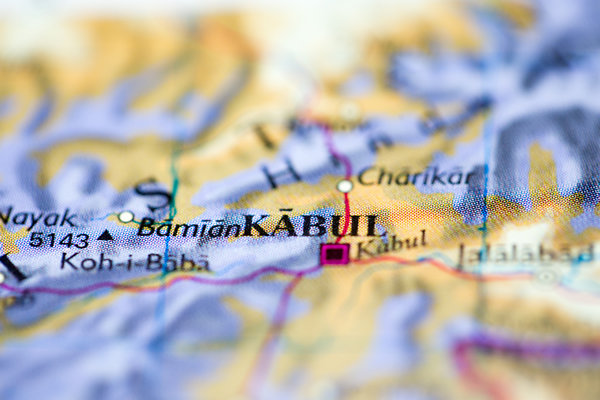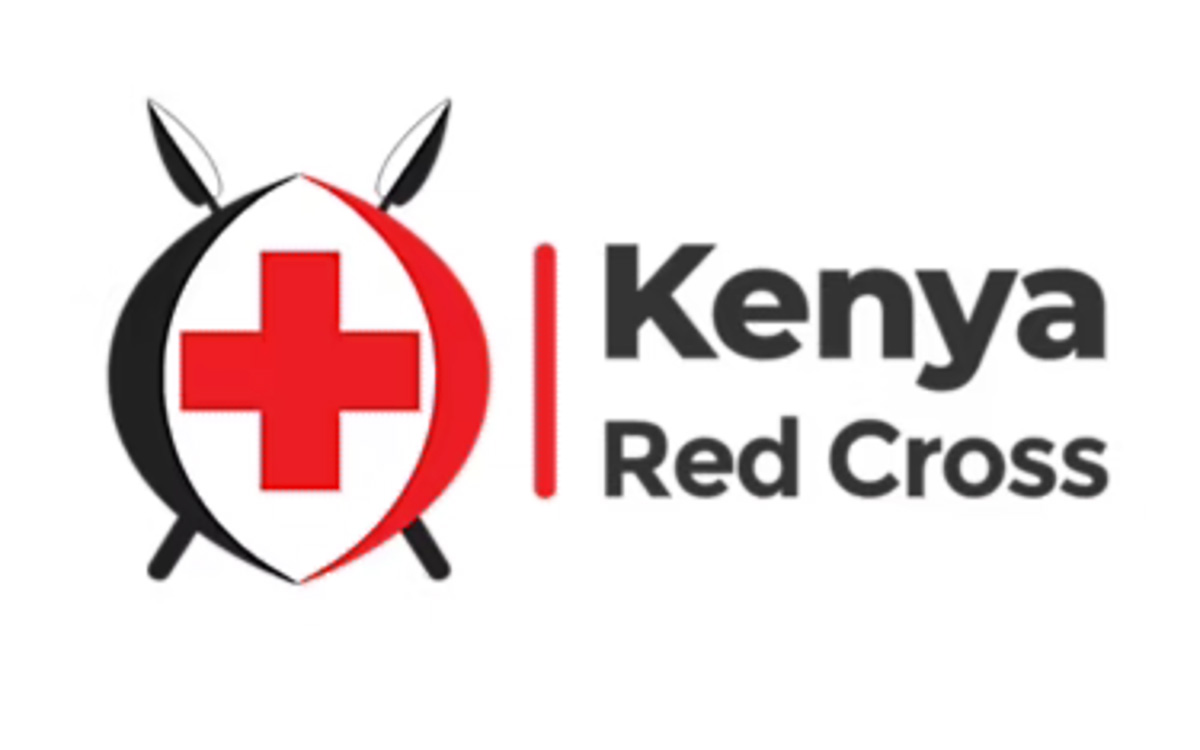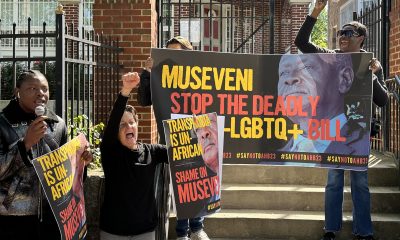World
Countries urged to offer refuge to LGBTQ Afghans
Taliban has said it will execute gay men

Advocacy groups have urged the U.S. and other countries to offer refuge to LGBTQ Afghans after the Taliban regained control of the country.
“As Afghanistan falls to the Taliban, members of the LGBTIQ community are among those at greatest risk of suffering under Taliban rule,” tweeted the Organization for Migration, Refuge and Asylum on Tuesday. “The international community must act quickly and decisively to aid all those fleeing persecution.”
As #Afghanistan falls to the Taliban, members of the #LGBTIQ community are among those at greatest risk of suffering under Taliban rule. The international community must act quickly and decisively to aid all those fleeing persecution.#asylum
📷 credit: Akhter Gulfman/EPA pic.twitter.com/XhyPuvKlVr— ORAM (@ORAMrefugee) August 17, 2021
Stonewall, a British LGBTQ rights group, echoed ORAM’s call.
“LGBTQ+ Afghans have endured routine discrimination, abuse and persecution, including by the state,” said Stonewall CEO Nancy Kelley on Tuesday. “With the Taliban in power we expect this situation to deteriorate further, including the potential for a return to active enforcement of the laws that prohibit same sex relationships.”
LGBTQ+ Afghans have endured routine discrimination, abuse & persecution, including by the state. With the Taliban in power we expect this situation to deteriorate further, including the potential for a return to active enforcement of the laws that prohibit same sex relationships. pic.twitter.com/TLgCPJij5Q
— Stonewall (@stonewalluk) August 17, 2021
President Biden last month announced U.S. military operations in Afghanistan would end on Aug. 31. The previous White House in 2020 brokered a peace deal with the Taliban that set the stage for the withdrawal.
The Taliban on Sunday entered Kabul, the Afghan capital, and toppled President Ashraf Ghani’s government. Evacuation flights resumed at the city’s Hamid Karzai International Airport on Tuesday, a day after thousands of Afghans who were desperate to leave the country swarmed it.
Media reports indicate a Taliban judge last month said the group would execute gay people if it once again governed Afghanistan.
“Afghanistan already is not a safe place to be LGBTQI+ people,” said Kimahli Powell, executive director of Rainbow Railroad, a Toronto-based organization that assists LGBTQ refugees around the world. “According to the U.S. State Department, public attitudes across the diversity of Afghan society towards LGBTQI+ people are extremely negative, which leads members of the LGBTQ+ community to keep their gender identity and sexual orientation a secret in fear of harassment, intimidation, persecution and death. Now, with the return of the Taliban, there is understandable fear that the situation will worsen.”
“Rainbow Railroad is concerned that the return to power of the Taliban will lead to instances of extreme violence directed at members of the LGBTQI+ community in Afghanistan,” added Powell. “And although it remains to be seen how the Taliban will respond to international pressure to uphold human rights, early signs are not encouraging. Just last month, a Taliban judge threatened that gay men will be crushed to death by toppling walls onto them should the group regain control of Afghanistan.”
Powell said Rainbow Railroad has received 50 “requests for help originating in Afghanistan” so far this year, “and we anticipate an uptick in requests due to the deteriorating security situation that threatens the safety of LGBTQI+ people.”
“Moreover there is very limited human rights defenders and civil society engagement to support LGBTQI+ persons at risk,” said Powell. “However, we are currently relying on our deep international network and contacts within the country in order to reach people at risk. “
‘We don’t know what’s happening’
Charbel Maydaa is the founder and general director of MOSAIC, a Lebanon-based advocacy group that works throughout the Middle East and North Africa. Maydaa is also the first alternate co-chair of ILGA Asia.
Maydaa on Tuesday noted to the Washington Blade that the Taliban use Sharia law to target LGBTQ people. Maydaa noted the Taliban wants “to look good in front of the international community,” but added LGBTQ Afghans who remain in the country are terrified.
“We lost contact with many people there,” said Maydaa. “We don’t know what’s happening. They’re not online or they are really afraid to talk on Facebook.”
Maydaa said three female academics with whom he has worked “disappeared” five days ago. Maydaa told the Blade an LGBTQ person in Kabul with whom he spoke on Monday “didn’t mention anything.”
“He was really afraid to communicate, so he was just like I’m alive. I’m fine,” said Maydaa.
Maydaa said ILGA Asia is currently working to find shelters for LGBTQ people in Afghanistan before they are able to leave the country. Maydaa added ILGA Asia is also “trying to advocate for some governments” to “literally rescue them.”
The Canadian government on Friday announced it will allow up to 20,000 Afghans — including members of the LGBTQ community — to resettle in the country.
“Canada will continue to implement the special immigration program for Afghans who contributed to Canada’s efforts in Afghanistan,” a Canadian government spokesperson told the Blade on Monday. “In addition, we will introduce a special program to focus on particularly vulnerable groups that are already welcomed to Canada through existing resettlement streams, including women leaders, human rights defenders, journalists, persecuted religious minorities, LGBTI individuals and family members of previously resettled interpreters.”
“The program will welcome government-supported and privately sponsored refugees, along with those sponsored by family already in Canada,” added the spokesperson. “In the coming weeks and months, we will be engaging with our international and domestic partners to develop a plan for moving forward.”
President Biden on Monday said the U.S. will expand “refuge access to cover other vulnerable Afghans who worked for our embassy; U.S. non-government agencies — or the U.S. non-governmental organizations and Afghans who otherwise are at great risk; and U.S. news agencies.” State Department spokesperson Ned Price on Monday also said the State Department will “continue to pursue all options to relocate interested and qualified Afghan SIV (Special Immigration Visas) applicants and their immediate families, as well as other vulnerable Afghans.”
Price and Biden in their remarks did not specifically mention LGBTQ Afghans. Rupert Colville, a spokesperson for U.N. High Commissioner for Human Rights Michelle Bachelet did not either on Tuesday.
“We call on the international community to extend all possible support to those who may be at imminent risk, and we call on the Taliban to demonstrate through their actions, not just their words, that the fears for the safety of so many people from so many different walks of life are addressed,” said Colville.
Log Cabin Republicans Managing Director Charles Moran on Monday sharply criticized the Biden administration.
“Make no mistake, the reinstatement of the Taliban is a literal death sentence for LGBT Afghans,” said Moran. “Human rights abuses will absolutely increase under this radical regime. The Biden administration talks a tough game about supporting the LGBT community, but that support evidently doesn’t extend to our allies in Kabul.”
“We hope the administration will be held accountable by both parties for this unprecedented disaster, but right now the priority must be to evacuate as many proven U.S. partners and allies from Kabul as possible, including LGBT Afghans,” added Moran.
Powell stressed “now is time for governments to step up and support LGBTQI+ Afghan refugees.” He specifically noted the Canadian government’s announcement.
“Rainbow Railroad is looking forward to engaging with the Canadian government to identify and refer LGBTQI+ Afghans in need of emergency assistance,” said Powell. “We strongly encourage other governments to do the same.”
Kenya
Kenya Red Cross-owned hotel to host anti-LGBTQ conference
Speakers from US, European countries to participate in May 12-17 gathering

Plans to host a family values meeting next month in a 5-star hotel in Nairobi that the Kenya Red Cross Society co-owns have sparked an uproar among local queer rights groups.
The groups accuse the Kenya Red Cross of violating its Global Fund commitment of protecting key populations by allowing its Boma Hotel to host an “anti-gender and anti-LGBTQ” conference.
Influential guest speakers from the U.S., the Netherlands, Spain, and Poland will preside over the Pan-African Conference on Family Values that will take place from May 12-17. The Kenyan advocacy groups say these speakers’ organizations are globally recognized for undermining LGBTQ rights.
“As the principal recipient of Global Fund in Kenya, hosting this event contradicts (the) Red Cross’s humanitarian mission and threatens the safety and dignity of people living with HIV, women and LGBTQ+ individuals, the communities that Kenya Red Cross Society has long committed to supporting,” the queer rights groups state.
The LGBTQ groups that have criticized the Kenya Red Cross include Upinde Advocates for Inclusion, the Initiative for Equality and Non-Discrimination, and Gay and Lesbian Coalition of Kenya. They have also launched an online signature collection drive to compel the Kenya Red Cross to withdraw the hotel from hosting the “Promoting and Protecting Family Values in Challenging Times”-themed conference.
“The event’s so-called ‘family values’ narrative is a smokescreen for policies that push hateful legislation and promote death, discrimination, femicide, gender-based violence, and restrict fundamental freedoms across Africa,” the groups said.
The pro-life Western organizations that are scheduled to participate in the conference include Family Watch International from the U.S., CitizenGo from Spain, the Ordo Luris Institute from Poland, Christian Council International from the Netherlands, the New York-based Center for Family and Human Rights (C-FAM), and the Foundation for American Cultural Heritage. Their local counterparts include the National Council of Churches of Kenya, the Kenya Christian Professionals Forum, the Africa Christian Professionals Forum, and the Evangelical Alliance of Kenya.
C-FAM President Austin Ruse; Family Research Council Vice President for Policy and Government Affairs Travis Wever; Global Life Campaign Executive Director Thomas W. Jacobson; and the Rev. Ricky Chelette, executive director of Living Hope Ministries, Inc., and president of the Institute of Biblical Sexuality are among the U.S. guest speakers. Other participants include Henk Jan van Schthorst, president of Christian Council International’s board of directors, Ordo Luris Institute President Jerzy Kwasniewskie and his colleague, Rafal Dorosinski, director of the group’s Legal Analysis Center.
The Kenyan groups through their online petition — “Tell Red Cross Kenya Not to Give Hate a Platform” — has so far raised more than 1,000 of the 10,000 signatures they hope to collect. The petition is addressed to Red Cross Kenya Secretary-General Ahmed Idris and his predecessor, Abbas Gullet, who is the hotel’s director.
“We call on you to immediately cancel this booking and publicly reaffirm Red Cross’ commitment to human rights, health and inclusivity,” the petition reads. “Failure to act will raise concerns about whether (the) Red Cross can still be trusted by the community to lead with empathy and fight for their rights.”
The Kenya Red Cross, however, maintains the Boma Hotel is a separate entity, even though public records indicate it is one of the facility’s shareholders.
The LGBTQ groups note the hotel should be a safe space that promotes inclusion, not platforms that enable “harmful gathering” for hate and exclusion by “dangerous groups.”
“By providing a venue for this event, Red Cross directly enables a platform for hate and discrimination — a stark contradiction to the values of inclusivity, humanity, and nondiscrimination that the organization claims to uphold,” they said.
The organizations further warn that proceeding to host the conference threatens the relationship between the Red Cross and the marginalized communities who have long depended on the humanitarian organization for support and protection. CitizenGo has nonetheless criticized the LGBTQ groups, which it describes as “radical activist groups” for “trying to silence a pro-family event” and asked the Kenya Red Cross and the Boma Hotel not to back down.
“These groups are calling the event ‘hateful’ because it affirms the natural family — marriage between a man and a woman — and the dignity of every human life, including the unborn,” Ann Kioko, the group’s campaign director for Africa and the U.N., said.
Through an online counter signature collection drive, Kioko holds CitizenGo and other groups won’t be intimidated, silenced or apologize to the queer rights groups for defending “our families, our faith and our future”.
“The real goal of these foreign-funded activist groups is to impose LGBTQ and gender ideologies on Africa — ideologies that have led elsewhere to the confusion of children, the breakdown of family structures and the rise of sexual libertinism that results in abortion, STIs and lifelong emotional and psychological trauma,” Kioko stated.
India
Opposition from religious groups prompts Indian Pride group to cancel annual parade
Event was to have taken place in Amritsar on April 27

Pride Amritsar, a student-led organization in the Indian state of Punjab, earlier this month announced the cancellation of its Pride parade that was scheduled to take place on April 27, citing opposition from certain religious groups.
The event, planned for the Rose Garden in Amritsar, a city revered as a spiritual center of Sikhism, had faced mounting resistance from Sikh religious organizations, including the Nihang Singh faction and the Akal Takht, the faith’s highest temporal authority. These groups labeled the parade as “unnatural” and urged local authorities to deny permission, citing its potential to disrupt the city’s religious sanctity.
In an Instagram post on April 6, Pride Amritsar organizers Ridham Chadha and Ramit Seth elaborated on its mission and the reasons for the cancellation.
“Since 2019, we have organized peaceful parades and celebrations in Amritsar to connect and uplift the LGBTQIA+ community, with a particular focus on transgender individuals and their rights,” their statement read.
Chadha and Seth highlighted Pride Amritsar efforts in providing guidance, counseling, and job opportunities, which have been met with positive responses. However, due to opposition this year, Pride Amritsar announced the cancellation of the 2025 parade.
“We have no intention of harming the sentiments of any religious or political groups,” the statement read. “The safety of our members is our top priority, and we will take all necessary measures to ensure their protection.”
Chadha and Seth spoke with the Washington Blade about their decision to cancel the parade.
They explained that resistance came from both religious and political groups who labeled the parade and its values as anti-Sikh and contrary to Punjabi and Indian cultural norms. Critics specifically objected to the event’s location in Amritsar, a city regarded as a sacred center of Sikhism, arguing that the parade would disrupt its spiritual purity.
Chadha and Seth stressed Pride Amritsar lacks political, financial, or legal support. Composed of students and young professionals, the group organizes the parade biennially, dedicating personal time to advocate for the LGBTQ community.
“We do it independently, crowdfund the parade and cover the rest with our pockets,” said Seth and Chadha.
When asked by the Blade why Pride Amritsar did not approach the High Court or local authorities to protect the parade, despite the Supreme Court’s 2018 ruling that decriminalized consensual same-sex sexual relations, Chadha and Seth cited significant barriers.
“Pursuing legal action in India requires substantial resources, both financial and temporal,” they explained.
Chadha and Seth also noted that such action could lead to public shaming and unwanted publicity for participants, potentially harming their careers in Amritsar. They therefore chose not to pursue legal recourse.
Chadha and Seth said Pride Amritsar does not have any plans to hold alternative events.
“We are still exploring options, but we are likely not holding any events this year,” they said, citing significant harassment that organizers faced and the need for time to plan how to best serve the local LGBTQ community moving forward.
“Our evaluation of what the biggest challenge is has changed after this year,” said Chadha and Seth to the Washington Blade. “The biggest challenge, by far, seems to be education. We need to educate the community about what the community is, does, and why it exists. Why we do parades. Why we dance. Why calling someone ‘chakka’ is harmful. How we actually fit into religion and fall within the guidelines.”
Chadha and Seth said organizing the parade in Amritsar since 2019 has been an uplifting experience, despite continued opposition.
“The moment you join the parade, chant a slogan, or sing a song, it’s transformative,” they said. “Fear vanishes, and a sense of freedom takes over.”
The cancellation of the 2025 Amritsar Pride Parade has sparked concerns among activists in Punjab, as the Indian Express reported.
The Punjab LGBT Alliance and other groups expressed concern that the decision to cancel the parade may strengthen opposition to future LGBTQ-specific events.
Australia
Australian LGBTQ rights group issues US travel advisory
Equality Australia warns transgender, nonbinary people of ‘serious risks’

An LGBTQ rights group in Australia has issued a travel advisory for transgender and nonbinary people who plan to visit the U.S.
Equality Australia on April 14 posted the advisory to its website that states the U.S. government’s policy on visas and Electronic System for Travel Authorization or ESTA “appears to be” the following:
• To use the term “biological sex”
• To only use the gender marker recorded at a person’s birth, even if this differs from their gender
• That valid foreign passports with an ‘X’ gender marker and a valid visa (if needed) may continue to be admitted, however this is contingent upon satisfying inspection of their admissibility by the U.S. Customs and Border Protection officer at the port of entry
• That any previously issued, valid visa may remain current until its expiration date and the visa holder does not need to apply for a new visa with an amended gender marker until the current visa expires (it is unclear whether this applies to ESTAs)
• That new visas will only be issued under the gender marker recorded for the applicant at birth (it is unclear whether this applies to ESTA applications, although only ‘M’ and ‘F’ gender marker options are available for ESTA applications)
• That if consular officers assessing visa applications become aware an application does not contain the gender marker recorded at the applicant’s birth, they should assess additional evidence (such as previous travel records, although the scope is unclear), and/or conduct interviews and
• That where individuals are not using the gender marker recorded at their birth, consular officers should consider classifying the application as procuring a visa through material misrepresentation or fraud, which results in a lifetime bar from the U.S.
President Donald Trump shortly after he took office on Jan. 20 issued an executive order that bans the State Department from issuing passports with “X” gender markers. Secretary of State Marco Rubio in response to directive ordered State Department personnel to “suspend any application requesting an ‘X’ sex marker and do not take any further action pending additional guidance from the department.” A federal judge in Boston on April 18 issued a temporary injunction against the Trump-Vance administration’s directive.
Equality Australia says its advisory is “relevant if you are traveling to the U.S.” and fall under the following criteria:
• Hold a passport with a gender ‘X’ marker
• Have identity documents with gender markers different to those assigned to you at birth, or where other relevant details (such as your name) have been changed
• Have gender markers in your identity documents that do not match your gender expression
• Have a track record of LGBTIQ+ activism or other political activity.
“Travel to the U.S. carries serious risks that should be considered before planning any travel, particularly if you fall under one of the above categories,” reads the advisory.
Germany, Denmark, Finland, and the Netherlands are among the countries that have issued travel advisories for trans and nonbinary people who plan to visit the U.S.
WorldPride is scheduled to take place in D.C. from May 17-June 8.
InterPride, the organization that coordinates WorldPride events, on March 12 issued its own travel advisory for trans and nonbinary people who want to travel to the U.S. Egale Canada, one of Canada’s largest LGBTQ advocacy organizations, in February announced its members will not attend WorldPride and any other event in the U.S. because of the Trump-Vance administration’s policies.
-

 Federal Government3 days ago
Federal Government3 days agoHHS to retire 988 crisis lifeline for LGBTQ youth
-

 Opinions3 days ago
Opinions3 days agoDavid Hogg’s arrogant, self-indulgent stunt
-

 District of Columbia3 days ago
District of Columbia3 days agoD.C. police seek help in identifying suspect in anti-gay threats case
-

 Virginia3 days ago
Virginia3 days agoGay talk show host wins GOP nom for Va. lieutenant guv











